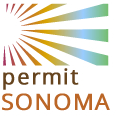7-0-9 Accessibility Complaint Processing

« Go Back to Code Enforcement Policies and Procedures
Version: 11/08/2023
Purpose
To provide guidelines to determine accessibility complaints enforced by Permit Sonoma and a procedure for processing accessibility complaints.
General
State accessibility regulations were established in the 1982 California Building Code for both public and private structures. Chapter 7 of the Sonoma County Code adopts Chapters 11A and 11B of the California Building Code. The adopted code regulates all aspects of accessibility including improvements within the public right-of-way, covered residential, public, and private commercial buildings as well as covered existing structures.
Permit Sonoma investigates complaints regarding accessibility compliance for privately owned public use buildings that have been constructed or modified under permit and inspection after a permit issuance date of July 1970 and multi-family dwellings constructed after a permit issuance date of March 13, 1991. All designated accessible parking, curb ramps, walks, sidewalks, routes, paths of travel, slope, and cross slope within privately owned land within the unincorporated territory of the County of Sonoma are enforced by Permit Sonoma.
Permit Sonoma’s accessibility enforcement does not extend to potential violations of the Federal Americans with Disabilities Act (ADA). For example, complaints regarding accessibility compliance for existing public use accommodations and multi-family buildings constructed prior to the above-noted dates and not modified since that date may nonetheless constitute a violation under federal accessibility regulations based on failure to provide program accessibility but are not building code violations enforced by Permit Sonoma. Additionally, Permit Sonoma’s enforcement of accessibility violations is subject to other limitations. For example, accessibility complaints that relate to accessibility within the public right-of-way, county-owned or leased buildings (including Water Agency facilities), public parks, and the fairgrounds should be referred to the County Accessibility Coordinator in the Human Resources Department, identified as the Americans with Disabilities Act (ADA) as set forth in the Human Resources’ website.
Authority
- California Code of Regulations, Title 24, Part II
- California Government Code Sections 4452 and 4453
Procedure
Government Code Section 4452 and the Health and Safety Code establish compliance schedules more restrictive than Chapter 1 of the Sonoma County Code. Since these state codes preempt county code, this procedure incorporates compliance schedules in accordance with state codes.
- Accessibility compliance enforced by Permit Sonoma shall be processed per Policy and Procedure Number 7-0-7 Anonymous and Confidential Complaints (PDF). All complaints alleging accessibility violations shall contain the specific non-compliant feature(s) and the location on the subject property. Overly broad or non-specific allegations will not be accepted. A complaint simply stating “non-compliant parking” does not contain enough information about the alleged non-compliant feature in question. Using this example, the complaint should be specific to the signage, striping, path of travel, or other element believed to be a violation. The Code Enforcement Supervisor shall identify all accessibility compliance complaints as a second priority (within 15 days of receiving the complaint) for investigation purposes.
- Any complaints or portion of a complaint handled by another department or agency shall be copied by the Senior Office Assistant and sent via fax, email, and/or County courier to the County’s ADA Coordinator in the Human Resources Department for distribution to the appropriate department or agency.
- Inspection staff shall send a Courtesy Notice to the property and/or business owner stating that Permit Sonoma has received a complaint regarding accessibility compliance and requesting that the owner or tenant contact us within 10 calendar days to schedule a site inspection. If the property and/or business owner fails to respond to the Courtesy Notice, staff shall conduct an unscheduled, unannounced site inspection at the earliest opportunity.
- If non-compliant features are observed, staff shall send a Notice & Order directing the owner to correct the non-compliant features within 90 days. This Notice & Order shall contain a description of the component and the specific code section in violation. Staff shall make every effort to photograph or otherwise document identified non-compliant features as noted on the complaint. A determination of violation may be appealed pursuant to the provisions of Sonoma County Code Chapter 1.
- If the non-compliant features observed cannot be corrected within 90 days, staff shall send a Letter of Intent for Accessibility Compliance in addition to the Notice & Order for the purpose of establishing a compliance schedule.
- Failure to negotiate or comply with a compliance schedule shall be abated per Section 1-7-3 of the Sonoma County Code.
- The property owner shall locate and provide staff all available construction documents containing accessibility improvements if they believe the Notice & Order was issued in error. This information shall include documentation of issued permit dates and scope of work, including any submitted Unreasonable Hardship forms. If no previous construction documents exist, the non-compliant feature will be brought into compliance with the accessibility requirements contained in the currently adopted California Building Code.
- Permits shall be required to address any non-compliant components identified in the Notice & Order pursuant to Policy Number 7-0-10 Permit Requirements for Accessibility Violations.
Attachments
- BPC-067 Letter of Intent for Accessibility Compliance (PDF)
- CDE-030 Notice & Order – No Accessibility
Approved By
Approved By: Tennis Wick, Director
Reviewed By: Department Manager: Tyra Harrington, Code Enforcement Manager
Reviewed By: County Counsel: Debbie Latham, Deputy County
Lead Author: Mark Franceschi, Code Enforcement Supervisor

 Translate
Translate